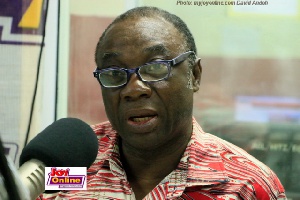Former Minister of Power under the erstwhile John Mahama administration, Dr. Kwabena Donkor, has in the midst of the power challenges being experienced in the country, blasted government for reviewing downwards electricity tariffs, and feeling the effect.
The National Democratic Congress (NDC) Member of Parliament (MP) for Pru East in the Brong Ahafo Region, says the decision which was a campaign promise, has partly contributed to the “intermittent” power supply, locally known as ‘dumsor’, announced by the current Minister for Energy, John Peter Amewu.
His claims come as The Herald has information that, the government plans to increase electricity tariffs first week in December.
Documents available to this paper details various percentages for various users. Officials of the Ghana Electricity Company (ECG), have been told to adjust meter reading next week.
The NDC legislator, said the downward review of the tariffs, was not based on proper analysis of the situation, but was to achieve a parochial political commendation.
Speaking on the energy sector on TV3’s New Day programme yesterday in the wake of what appears to be the return of the dreaded dumsor, Dr. Donkor, diagnosed that the current power situation, could be solved, but will have to be done from different angles.
According to the former Power Minister, in an economic dispensation where a chunk of the sectors expenditure, is dollar denominated, and the Cedi is free-falling, it is very difficult to implement such a measure.
“The power crisis will be solved on a number of legs. For example,the reduction in the last tariffs was populist, was not based on actuality, but was played to the gallery.
70-80 percent of all expenditure is dollar denominated apart from salaries and wages, so at a time when your cedi is depreciating against the dollar, to further reduce tariffs, is double whammy.
He arguedthat, when the Cedi was fast depreciating against the dollar, government should have rather resorted to remove the many taxes put on the electricity tariffs, to give customers some respite.
“Government could have decided that ok, am taking off all my taxes to give some relief to consumers. What that will do, will be to let the tariffs stay, because of the deterioration of the Cedi-dollar relationship.
The other alternative is, since most of the entities are owned by government, then it should have said I will inject capital.
At a time when Ghana Grid Company Limited (GRiDCO) had to cut it capital expenditure by 80 percent, as a result of the reduction, when government and also ECG, made loses last year after it made profit in 2016, all government ended up doing was to postpone the inevitable”.
He continued “For example GRiDCO, had to cancel 80 percent of its capital expenditure because of that tariffs reduction. So you are postponing the inevitable. If you want efficiency, especially technical efficiency, you need to invest more, if you are postponing, then what are you doing?
ECG made profit in 2016, ECG made loses in 2017 and 2018 and yet there has been no capital injection by the shareholder which is government and it revenue has been cut. It’s a double whammy”.
Meanwhile, the Energy Minister has admitted that the country is currently faced with challenges in the power sector, except to attribute his cause to an incomplete project that is meant to allow gas flow into the country.
According to him, the incomplete project is due to a disagreement over tariffs between the Energy Ministry and the regulator; West African Gas Pipeline; which have been resolved now.
Addressing the media over the recent power outages, the Minister said the regulator – West African Gas Pipeline- has finally issued the final tariff notice of 1.7 dollars per MMBtu which would be approved by the committee of ministers on the 30th of November 2018 to pave way for the signing of the Gas Transportation Agreement.
According to him, signing of the Gas Transportation Agreement, will solve the current power crisis being faced in the country.
Assuring members of the public to remain calm, he said “the ministry of energy wants to assure the public that the current power problems that we have over the past few days would gradually be brought under control”.
But spokesperson on Mines and Energy Committee on the Minority side in Parliament, Adams Mutawakilu, has said Ghanaians should consider the recent power outages as a return of the most dreaded ‘dumsor’.
Adams Mutawakilu, said the country has enough resources to provide adequate power, and the irregular power situation is a clear indication of the government’s mismanagement of these resources, hence the situation.
His comments come at a time when the, GRiCO, has attributed the blackouts to a drop in gas pressure at Aboadze, which caused a reduction in power generation from the West.
“It is evident that ‘dumsor’ is coming back. The excuses given by VRA and GRIDCO are not reasonable. If you talk about Aboadze thermal plant having challenges, we have excess power of 804 MegaWatts, so they should have excess capacity in the power sector, so that when one plants goes down, another one functions.
So that explanation given should not be accepted by Ghanaians; they should take it with a pinch of salt.”
Adam Mutawakilu, also wants the government to be truthful about the recent power outages being experienced in the country.
He insists the explanation by GRIDCO is not tenable, especially when there is supposed to be a power reserve margin that can be utilized in times of such shortfalls.
“The issue is that, there are serious liquidity challenges in the power sector irrespective the many assurances by government. This government is misapplying the ESLA bond that John Mahama introduced to leverage the energy sector.”
General News of Thursday, 29 November 2018
Source: theheraldghana.com

















